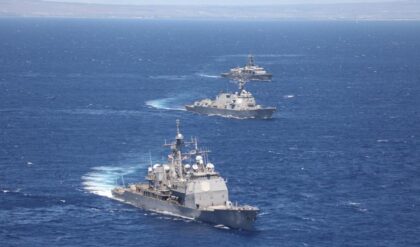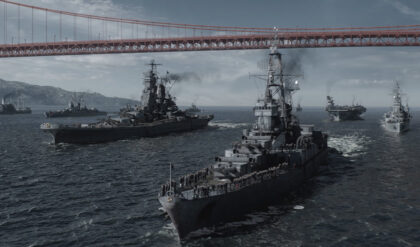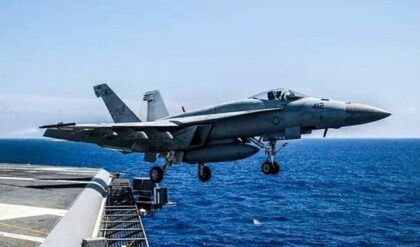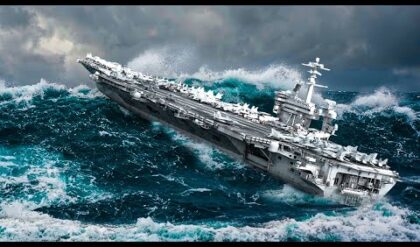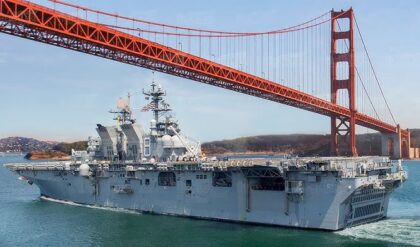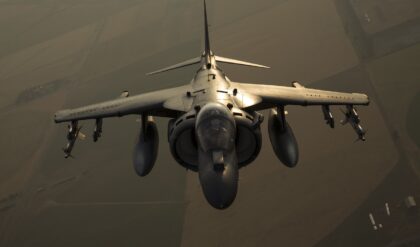JEDDAH: A US Navy ship fired warning shots when an Iranian vessel in the Gulf came within 150 yards (137 meters) of it on Tuesday, in the first such incident since President Donald Trump took office, US officials said.
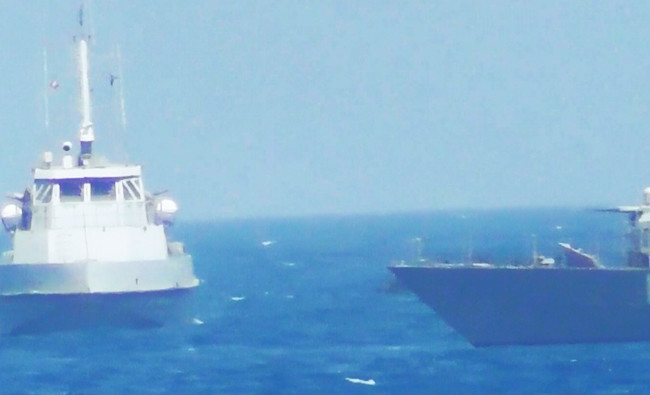
1 / 2
An Iranian Revolutionary Guard Corps boat heading toward the USS Thunderbolt in the Gulf. (AFP)

2 / 2
The last major incident was earlier in January, though a US vessel fired a flare in March when a US Navy ship was forced to change course after multiple fast-attack vessels from Iran’s Revolutionary Guard Corps (IRGC) came too close.
In a statement to Reuters, US Naval Forces Central Command said the patrol craft, named USS Thunderbolt, fired the warning shots in front of the Iranian vessel after it ignored radio calls, flares and the ship’s whistle.
The Iranian vessel was from IRGC, the statement said, adding that it stopped its unsafe approach after the warning shots were fired.
A US official, speaking on the condition of anonymity, told Reuters that the Iranian boat was armed but that the weapons were unmanned.
The USS Thunderbolt was accompanied by a number of other vessels, including those from the US Coast Guard.
Oubai Shahbandar, a Syrian-American analyst told Arab News that the Iranian objective is to take control of the strategic waterways in the Gulf.

“We saw multiple acts from the IRGC against the US Navy under the Obama administration.
The difference now is that under Trump, the US Navy seems to have been authorized to push back harder against IRGC naval threats,” said Shahbandar.
The Iranian navy issued a statement on Tuesday noting that an American “battleship” moved toward one of its patrol boats in international waters in the northern Gulf and fired two shots in the air, according to Sepah News, the official news site of the IRGC.
In its annual Country Reports on Terrorism, the US State Department this week said Iran was the world’s “foremost” state sponsor of terrorism in 2016, a dubious distinction the country has held for many years.
It said Tehran was firm in its backing of proxies that have destabilized Iraq, Syria and Yemen.
The report added that Iran continued to recruit in Afghanistan and Pakistan for Shiite militia members to fight in Syria and Iraq, and Iranian support for Hezbollah was unchanged.
Tehran used a unit of the IRGC, the Quds Force, “to implement foreign policy goals, provide cover for intelligence operations and create instability in the Middle East,” the report said.
